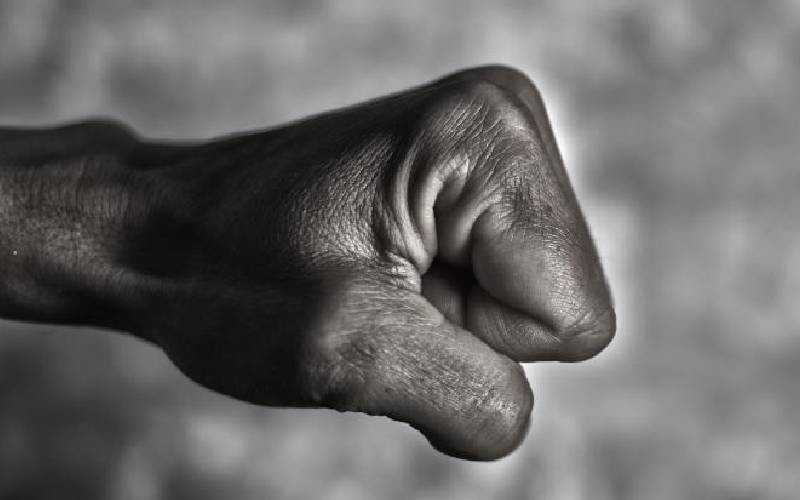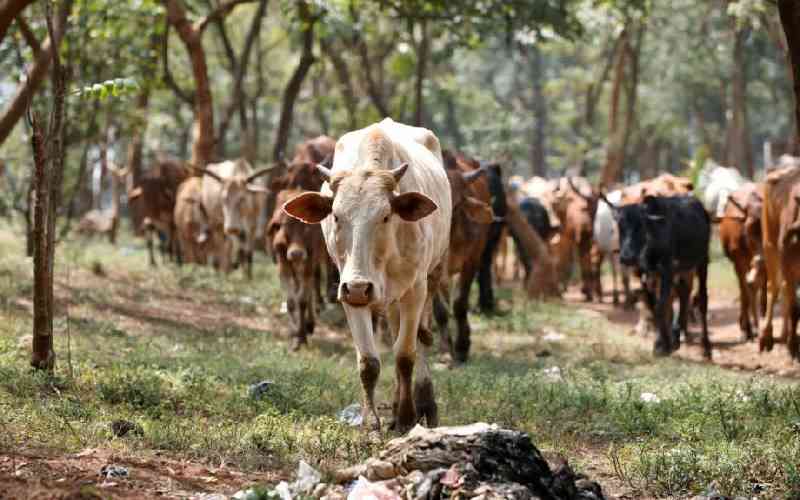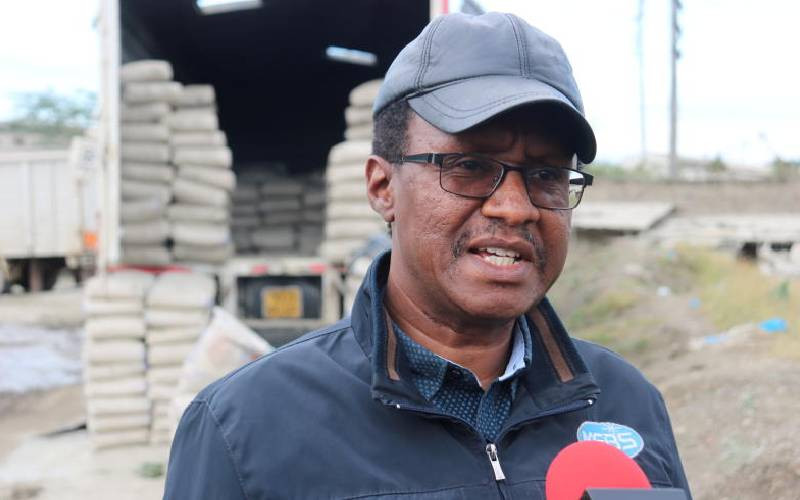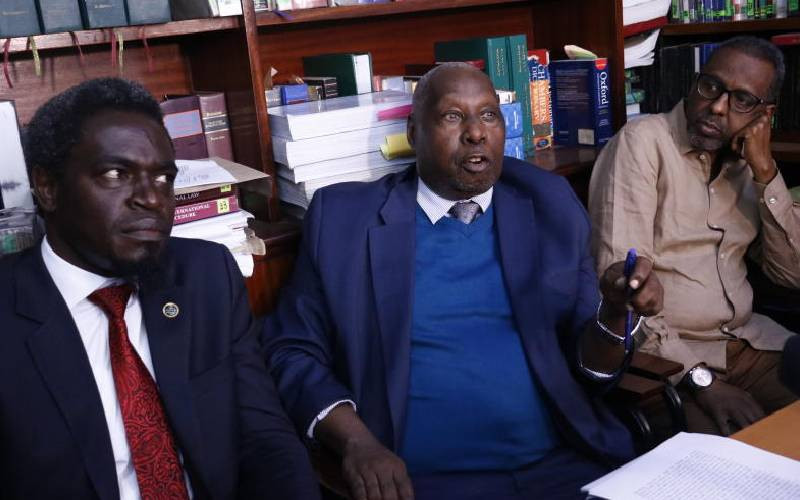
Witnesses withdrawing their evidence and failing to attend court are some of the major issues hampering the prosecution of sexual and gender-based violence (SGBV) cases, according to a report released by The Office of the Director of Public Prosecutions (DPP).
Undue influence and hostility also have a role to play in blocking justice for SGBV victims. However, some victims also chose to settle matters out of court.
These revelations were made when the ODPP recently released a comprehensive Sexual and Gender-Based Violence (SGBV) report for 2021-2022.
Other challenges, the report says, were poor investigation processes, where custody of exhibits is compromised, failure to secure crime scenes on time, failure to preserve forensic evidence, and loss of exhibits.
"Age of victim affects coherence and expression. Ignorance of victim may lead to loss of crucial evidence, for instance, having a bath after rape/ defilement," reads the report.
"Use of intermediary may distort evidence, or the victim is forced to recall an event that they are better forgetting. Trauma bonding between victim and perpetrator leads to concealment of crucial evidence," the ODDP says.
Transfer of judicial officers, lack of safe spaces to house survivors, inadequate personnel, and lack of financial resources and ICT equipment also emerged as notable challenges against the prosecution of sexual violence cases.
- Understanding obstetric violence and why it is a global concern
- Gender-responsive health policies key to achieving equity, experts say
- Why women aren't lining up for life-saving screening, vaccine
- Organisation protects boys and girls in fight against FGM in Samburu
Keep Reading
The report also sheds light on how the ODPP has worked to enable SGBV survivors to have improved access to justice, such as the creation of a division within the office specialised in dealing with SGBV matters.
According to the Head of SGBV Division at ODDP and Assistant Director of Public Prosecution Jackie Njagi, the chief justice has already set up an SGBV court in Shanzu and there's a promise to roll it out in other counties.
"Through separating sexual violence issues from the mainstream courts and automating the processes, the period a matter stays in court will be shortened," Ms Njagi said.
"We also conduct regular training and sensitization of prosecutors on SGBV matters, to ensure victims are afforded a safe professional space to report their cases," she said.
Other initiatives the office does to streamline SGBV prosecution include developing policies and guidelines to ensure that only merited cases make it to court for prosecution.
"Limiting the use of alternatives to prosecution in cases of SGBV, decentralising prosecutorial services, and leveraging technology to sensitise the public on their rights through social media, such as the ODPP Cafe," the report said.
The office has also enabled automation and modernisation of ODPP processes and procedures for ease of reporting and tracking of cases.
It also facilitates and supports witnesses and victims of crime to and from court to give evidence.
Still, the ODPP office admitted in the report that there were missing links to sexual violence prosecution cases, including how the justice system can best deal with survivors with diverse sexual orientations and gender identities.
"Lack of awareness of the roles of the various actors in the justice system hindered survivors from making informed decisions," read the report.
The criminal justice system, the report revealed, is incapable of dealing with the salient nuances that underlie SGBV, such as economic inequalities.
It also struggles to handle mass atrocity SGBV cases, especially where the perpetrators cannot be easily identified, for example, in electoral violence.
The report recommended that the justice system install a continuous chain to ensure the complete reintegration of the victim into society, no matter the outcome of the criminal trial.
The numbers prove that the scourge of SGBV remains a threat to many around the country, especially children.
"Defilement mostly happens in the family setting. People were not reporting in the past but there's a lot of reporting of defilement cases. It's easier to report defilement because you're reporting on behalf of someone else," said Njagi. "Still, the sheer numbers of child abuse are alarming," she said.
Njagi added that rape cases still go unreported due to backlash. "If a married woman is raped for instance, she may fail to report for fear that the husband will heave her," she explained.
"Adults who experience rape are usually left with the burden of justifying rape and so many questions are asked," she said.
"For many of these pending cases, you'll find that a matter is filed in court, but it may not proceed because a child is pregnant so she cannot attend court in the state, and there are issues of traditional ways of settling matters that crop up as a case proceeds, especially in Western," said Njagi.
"Other factors in play might be transfers of judicial officers, witnesses withdrawing evidence, and lack of adequate preparedness of victims to relive their stories in court," she said.
According to the report, six in every ten of all sexual violence cases reported were defilement, which means penetrative sex with children.
Indecent acts with a child ranked disturbingly high, just behind rape.
Incest, which is having sex with a close relative, was fourth.
Unnatural sex, including anal penetration, were the fifth most reported cases.
Other sexual violence cases reported were trafficking for sexual exploitation, child prostitution, and bestiality, which are sexual acts with nonhuman animals.
Nairobi, North Rift, coast, and Central reported the highest numbers of registered defilement cases.
 The Standard Group Plc is a multi-media organization with investments in media platforms spanning newspaper print
operations, television, radio broadcasting, digital and online services. The Standard Group is recognized as a
leading multi-media house in Kenya with a key influence in matters of national and international interest.
The Standard Group Plc is a multi-media organization with investments in media platforms spanning newspaper print
operations, television, radio broadcasting, digital and online services. The Standard Group is recognized as a
leading multi-media house in Kenya with a key influence in matters of national and international interest.











